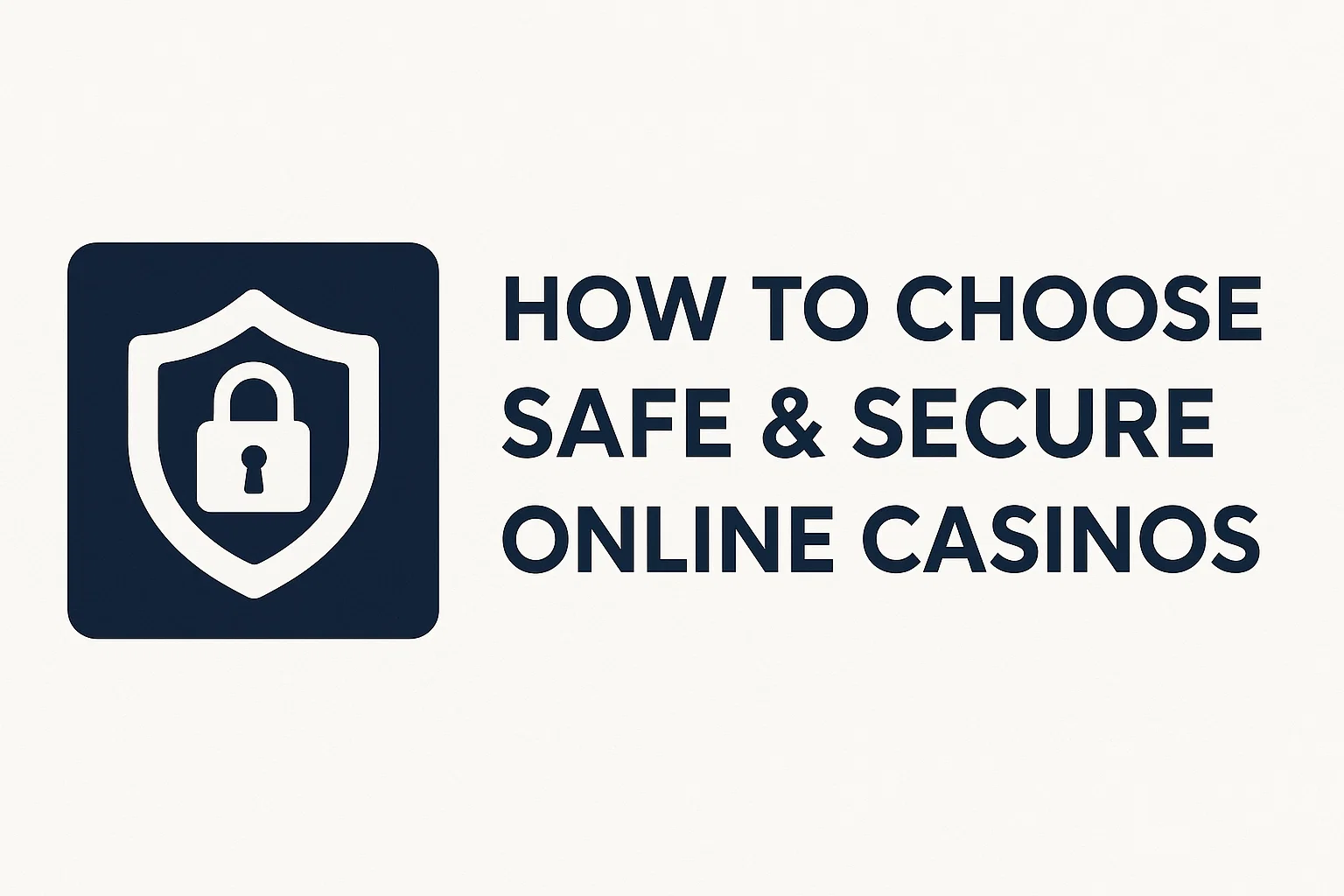How to Choose Safe & Secure Online Casinos

Not all online casinos available to American players are legitimate, licensed online casinos. Don't ship a buck before you take a moment to read through some easy trust signals. If you're on a page that's not showing a license issued for your state, don't hit the road just yet—it could be operating under an authorized interstate, tribal, or internationally licensed license. However, state-owned real-money casinos are the gold standard for US gamblers. Check out our online online casinos available US for an instant shortlist. Utilize the following checklist to judge any operator.
Most Important Things to Notice Before You Play
- License & Legal Status
Check only that the site is licensed to accept players from your U.S. state. Call your state's gaming regulator (e.g., New Jersey Division of Gaming Enforcement, Pennsylvania Gaming Control Board, Michigan Gaming Control Board, Nevada Gaming Control Board, etc.). If a site is not licensed by the state, research more: some offshore casinos are licensed offshore (Malta, Isle of Man, etc.), and that gives some degree of protection—none of the protection of a well-regulated U.S. site. - Data Encryption (SSL/TLS)
bank-grade encryption shields logins, deposits, and withdrawals. Check your browser for the lock; you'll have a valid certificate and https at the start of the address bar. - Identity Verification (KYC)
Real U.S. casinos use identity verification to prevent fraud, underage play, and money laundering. Be ready to provide ID documents and (in most jurisdictions) pass geolocation tests that ensure you are indeed within the legalized area when placing a bet. - Payment Methods
Reliable operators provide established, regulated bank rails: ACH/e-check, online banking transfer, Visa/Mastercard debit, Play+ prepaid card, PayPal, Venmo (where it's available), and from time to time, cash cage deposits at affiliate land-based casinos. Familiar brands = stronger bank relationships and increased consumer protection. - Real Software Providers
Well-established studios (IGT, Light & Wonder, NetEnt, Evolution, etc.) only deal with well-tested, licensed operators. Familiar game providers are an immediate credibility booster. - Customer Support
Round-the-clock (or close to 24/7) live chat, responsive e-mail, and—preferably—phone support are symptomatic of no-nonsense, player-friendly operations. - RTP Transparancy
A low or openly printed RTP range is comforting. Extremely low or backdoor RTP percentage ranges should flag suspicions. In regulated U.S. markets, game math is analyzed by state- or approved third-party labs.
Remember these guidelines, and you can pick safe internet casinos anywhere in the United States—or quickly rule out possible suspect ones.
How Do I Know If a Casino Is Safe?
Choosing a completely legal, reputable U.S. internet casino is still difficult. Most sites claim they'll accept American clients, but only those licensed in your state are allowed to offer real-money iGaming to you (except for sweepstakes/social models). Verify the license details yourself—don't believe a website's own self-description.
When we evaluate operators for U.S. players, we verify:
- Current state license(s) and operating agreement(s).
- Approved payment methods that clear through licensed intermediaries.
- Certified game libraries (RNG audits, live dealer studio approvals).
- Secure payout procedures.
If you’re looking at a recommended list from a trusted review source and the casino appears there, that usually means it has met baseline licensing, banking, and security standards. Still, it never hurts to double‑check.
Licensing & Regulation in the United States
The U.S. lacks a single federal online gaming license. It's licensed state by state (and tribal compacts in others). Any state legalizing real-money online casinos or online sports betting offers its own approvals.
That's a rough outline of how licensing is parceled out in the U.S. (conceptually similar to the "general/singular" split you'll see elsewhere):
- Primary / Platform License (State Operator License): Permits the business to offer real-money interactive gaming in a state. Renewed periodically (differs by term—some 5 years, some less; under consideration).
- Game-Specific or Vertical Approvals: Separate permissions (or certifications) are acquired for every game category—slots, table games (blackjack, roulette, etc.), poker, live dealer streaming, sometimes peer-to-peer or exchange wagering. Regulators test the game math, RNG, payoff tables, and technical interfaces before they can approve for release.
To acquire and retain such licenses, operators will have to go through background checks, funds suitability testing, technology laboratory tests, geolocation checking compliance, anti-money laundering controls, and ongoing reporting obligations. Check for the state regulator's seal—usually click-through at the bottom footer of the site.
Security & Player Privacy
All legal U.S. online casinos are subject to regulatory tech standards that include secure data handling, segregation of player funds (rules vary), and anti‑fraud monitoring. Many also submit to periodic audits by independent testing agencies—names you’ll see include eCOGRA, Gaming Laboratories International (GLI), BMM Testlabs, and iTech Labs. These labs validate RNG fairness, payout accuracy, and systems security.
Websites now encrypt traffic end-to-end via SSL/TLS. Sensitive information—banking numbers, Social Security last four digits used for identification matching, and geolocation tokens—are transmitted over secure channels and stored with strict access control.
Securing Your Own Account: What to Do
Even if you select a secure casino licensed, a few good practices will suffice:
- Verify Your Account (Complete KYC): Post ID within a reasonable timeframe–even before the casino requires it. Verified accounts process quicker withdrawals and reduced holding.
- Utilize Reliable Networks: Avoid logging in via public Wi‑Fi hotspots. If needed, utilize a reliable VPN only where allowed (notice: VPN use can disrupt required geolocation confirmation; most U.S. regulated casinos prohibit location masking during real money play).
- Make Safe, Distinctive Passwords: Mix length, numbers, and symbols. Consider a password manager. Enable two‑factor authentication (2FA) if the casino supports it.
- Close Down Phishy Messages: Refuse to click links in unexpected messages or messages about urgent account issues. Log into the casino directly from your bookmark.
In doing this, account hijacking, lost funds, and identity abuse hit zero.
